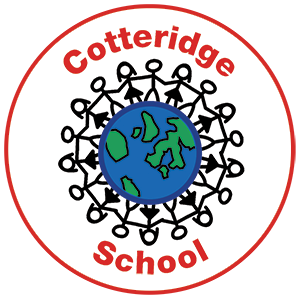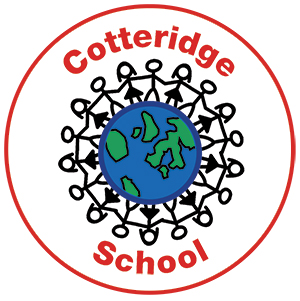ENGLISH
English – Writing – Mrs K. Taylor and Reading – Miss J. Stalker
English teaching and learning involves the four elements of English: Speaking, Listening, Reading and Writing. At Cotteridge School we want our children to become:
- Confident speakers in a variety of situations
- Good listeners
- Readers who enjoy all sorts of stories, poetry, plays and information
- Writers who have the skills to write for different purposes
We believe parents are partners in our teaching of reading and set reading as homework in all classes as well as attending Reading workshops throughout the year. We teach phonics in the Foundation Stage and in Key Stage One using Essential Letters and Sounds. Using PM Benchmarking and Phonics assessment, children’s reading levels are assessed. Using the Oxford scheme, children are given a fully decodable home reading book, which has been read during Guided Reading, that corresponds with the sounds that are being taught in class, in addition to a richer reading book each week. Daily Guided Reading sessions take place where the child reads the same book throughout week to develop fluency, which is taken home to celebrate their success.
Accelerated Reader is a reading programme which is used in KS2, whereby the children read books suitable to their reading and comprehension ability. We have a wide range of resources, including whole class book collections and well stocked Junior and Infant libraries. In Year 2 and Key Stage Two, children and staff participate in DEAR (Drop Everything And Read), encouraging reading for pleasure several times per week. The children are exposed to high quality picture and chapter texts, exploring different themes. Each term, every child in KS2 receives their own copy of the class text to enjoy at home for years to come.
Every year we celebrate World Book Day as a week to promote a love of books and reading. Children and staff join in with celebrations, which may include dressing up as a character or in PJs. Whole school activities are carried out throughout the day celebrating reading. Classes are invited to read to other year groups, which are enjoyed by both older and younger children. There is also a Book Fair during the school year. Across the year, Key Stage 1 classes may also visit local libraries.


